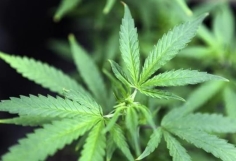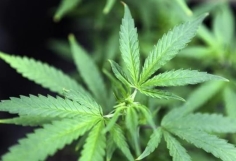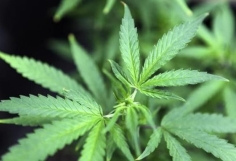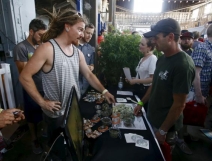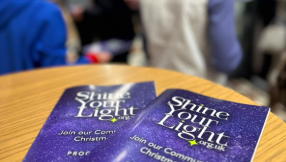Most Christian churches are actively campaigning against drug use, knowing fully well that it has many negative effects, especially to the youth.
However, a group of some 600 Methodist Christian churches has deemed that the US war on drugs has become ineffective and has already lost its appeal. Hence, it is now calling for this campaign to stop.
The New England Conference of United Methodist Churches, a group of churches spanning six states, recently passed during its annual conference a resolution calling for an end to the government's war on drugs.
In the resolution, the Methodist Christian churches said the prohibition has failed to address the drug use problem in the country.
On the contrary, the churches argued that the war on drugs has unintentionally caused deaths, destroyed families, wasted public funds, overwhelmed the country's courts and overcrowded the already problematic prisons.
The group said the war on drugs has affected mostly minorities, especially black and Latino Americans.
"To people of colour, the 'war on drugs' has arguably been the single most devastating, dysfunctional social policy since slavery," the resolution stated.
The Methodist Christian Churches also urged the US government to address the country's drug abuse problem through "means other than prohibition."
"In the love of Christ, who came to save those who are lost and vulnerable, we urge the creation of a genuinely new system for the care and restoration of victims, offenders, criminal justice officials, and the community as a whole," the group said.
"Restorative justice grows out of biblical authority, which emphasises a right relationship with God, self and community. When such relationships are violated or broken through crime, opportunities are created to make things right," it added.
The war on drugs was launched by President Richard Nixon in 1971, who declared drug abuse as the US' "public enemy number one."
Aside from prohibition on drugs, the campaign also involves military aid to efforts to fight powerful drug cartels, mostly in Latin American countries.
The Methodist Christian Churches' call for an end to the war of drugs quickly drew criticism from Jennifer LeClaire, senior editor of Charisma, the director of Awakening House of Prayer in Fort Lauderdale, Florida, and author of several books.
LeClaire said although the war on drugs hasn't ended drug abuse, "it has made a difference."
"At a time when some churches are capitulating on gay marriage," LeClaire wondered why other churches are suggesting that "we give up the battle against barbiturates, marijuana, crack, heroine and the slew of newfangled highs hitting the streets today."
With marijuana use already legalised in several states, LeClaire said "now is the time to fight harder, not shrink back."
"Legalising drugs sends the wrong message to a generation trying to fill the void in their heart only Christ can fill," she said.
LeClaire said "the best way to wage war against drugs is by preaching the Gospel" and "delivering the addicts from the demons that have entered their soul."
"We may have lost the war on drugs in the natural, but we can win the war on drugs in the spirit with the power of God that brings salvation," she said.










